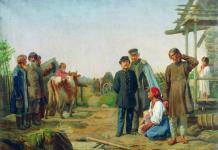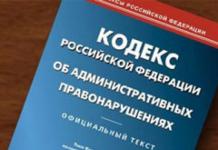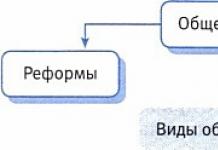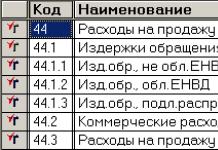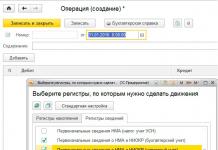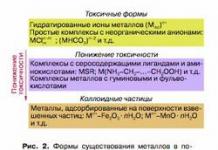Many believe that in the 1980s the Soviet Union lagged behind the United States technically. However, we did not lose the Cold War because of technical inferiority. Everyone knows that our technicians were much cooler than the technical specialists of the potential enemy. Our technology was also no worse, and in some ways even better, than in Western countries. Maybe we lost it due to economic lag? That's also not true. Gorbachev called the last years of Brezhnev's rule a period of stagnation. However, in reality, the stagnation in the economy was not with Us, but with Them.
If during 1980-84 the national income of the USSR grew by 19%, then in the USA this growth barely reached six. Over the same years, our labor productivity increased by 14%. In the United States, this figure was only 3% over these years. Moreover, years such as 1980 and 1982 were years of decline, not growth, in America. Thus, in 1980 the fall in production was 3.6%, and in 1982 – 8.2%. Industrial production in our country during the XI Five-Year Plan (1981-86) increased by 18%, while in America this growth was only one percent. And, most importantly, real per capita income in our country increased by 13%, while in the USA they decreased by 9%. In 1983, the national income of the USSR was equal to 66% of the American one. The volume of industrial production was 80% of the American one. The USSR's share in world industrial production was 21%. Nowadays, the share of all countries of the former USSR, including Russia, is only about 3%. In pig iron production, our country was 2.86 times higher than the United States, and in steel – 2.14 times. Yes, in some indicators the United States was ahead of us, but in most of them, as can be seen from the table below, compiled, by the way, according to CIA data, We were ahead of the United States.

Maybe the gap in living standards between Them and Us is to blame?
And this is also not true. According to objective indicators, our standard of living was no lower than in the United States. In 1983-85. a Soviet person consumed an average of 98.3 g of protein per day, and an American - 104.4 g. The difference is not that big. True, the American ate much more fat - 167.2 grams versus our 99.2 - but this made him on average 20 kilograms leaner than the Russian - 71 kg versus 200 pounds. But we consumed an average of 341 kg of milk and dairy products per person per year. In America, this figure was 260 kg. Sugar consumption was 47.2 kg per person per year in the USSR, and 28 kg in the USA.
A dollar in 1983 cost 70.7 kopecks (See: Ruble to dollar and dollar to ruble exchange rates from 1792 to 2010), and the average salary of a Soviet person was 165 rubles 75 kopecks ($234.44) (See: Salaries in Russia and the USSR for 1853-2010, expressed in rubles, dollars, and kilograms of potatoes) per month. The average American's wage was then $1,269.94 (See: US wages from 1950 to 2010, expressed in dollars and liters of gasoline). It seems to be 5.15 times more. But the same American paid 56 cents (39.5 kopecks) for a loaf of bread, and the Russian paid 13 kopecks, that is, three times more. A Russian made a phone call for two kopecks, and an American for 25 cents (17.67 kopecks), that is, he paid 8,837 times more for a phone call. For travel on public transport, a Russian paid five kopecks, and for a tram and trolleybus - 3-4, depending on the region. The American paid as much as $1 for the fare. In addition, an American paid an average of $6,000 per year for the education of his student son, and a Russian student received 40-55 “re” per month just for regularly attending lectures, and if he was an excellent student, he received a so-called Lenin scholarship to in the amount of 75 rubles, which was 5 rubles more than the salary of a janitor or cleaning lady.
To buy a private house or cooperative apartment, a Soviet person had to have 9,760 rubles in 1983, and the average housing in the United States cost $82,600 (58,400 rubles).
The largest part of an American's expenses was rent, which averaged $335 per month in 1983. In those years, I paid 9 rubles 61 kopecks in utility bills for a two-room apartment. Other Soviet citizens paid approximately the same amount.
In those years, only students or very young families rented housing. But even if I suddenly needed to rent a place, I could rent the same two-room apartment, after hanging around a little on Banny Lane, for 40 rubles ($28), that is, 12 times cheaper than in America.
Those Americans who did not rent housing were already paying off the loan for it. In 1984, with an average household income of $21,788, that same family paid $6,626 a year in mortgage payments, more than 30% of its income. Another 20%, that is, $4,377, was spent by the same family on fuels and lubricants, and $3,391—18%—was spent on food.
Of all the food products in the United States, only eggs were cheaper. If in our country an egg of the first category cost 12 kopecks (the second category, respectively, 9.5 kopecks), then in the USA a dozen eggs cost 89 cents - that is, 5.24 of our then kopecks per egg. Nevertheless, in terms of general purchasing power parity, the ruble could be equated to 5.5 dollars. That is, in fact, the dollar exchange rate was officially not overvalued, but undervalued.
Why then did our people pay currency traders six rubles per dollar? Yes, because in Soviet times people were shot for currency transactions - for both the buyer and the seller it was a payment for the risk. In the same way, a bottle of whiskey, which cost 22 cents before the introduction of Prohibition, jumped to a dollar after its introduction, and so the dollar and in the USSR after the execution of Rokotov, Yakovlev and Faibishenko in 1961, the price of the dollar on the black market jumped significantly.
However, not everything can be compared in monetary terms. So, if a person fell ill with us, then medical care was provided to him free of charge, and his salary was maintained at his place of work, unless, of course, he was sick for no more than six months - then he was transferred to disability and paid a pension. You will say that the Americans had unemployment benefits. Yes, we didn’t pay unemployment benefits - those who were unemployed were imprisoned for parasitism, because everyone who wanted to was hired to work with their hands and feet. But, most importantly, our man did not have his current main drawback - lack of money. On the contrary, there was so much money that there were not enough goods - industry and transport did not have time to satisfy effective demand. But even if we take on faith the thesis that we lived worse, this does not explain our defeat, because during the Patriotic War the Germans lived much better than us, but, nevertheless, we won the Patriotic War against them, and we won would have been possible even if the Allies had never landed in Europe.
Why then did we lose the Cold War?
We lost it on the ideological front. As Professor Preobrazhensky said, the devastation is not in the closets, but in the heads. Western psychological warfare specialists managed to create chaos in the minds of Soviet citizens. The means of creating this devastation were rumors and gossip, which were not carried around by toothless old women. These rumors carried information that the West supposedly lives better than us. Anecdotes appeared that ridiculed love of country, honesty and integrity. As a result, by the beginning of the 80s, young people paid 200 rubles ($263) for Montana jeans, which cost about thirty in America, and bought dollars for 6-7 rubles, which officially cost 70 kopecks, but in reality 18 kopecks. But, most importantly, the average representative of Soviet youth began to dream of running away to the West and living there “like a human being.” And there was no real counteraction to these rumors and gossip. It wasn’t because there was a shortage of humanitarian personnel in the country - the same ones from which soldiers of psychological warfare are recruited. If the national culture is strong, then the people with pitchforks and spears will defeat any enemy. If the culture cracks, then national identity is lost, and such a decayed ethnic group can be taken with bare hands. But there was no one to support the culture. Ideologists from the party and Komsomol apparatus were engaged in Marxist-Leninist scholasticism, divorced from modernity, incapable of being an ideological rival to advanced psi technologies in the era of scientific and technological revolution.
Instead of skillfully refuting the enemy’s theses, they simply jammed the Voice of America, achieving the opposite effect - in our country they love everything that is forbidden. CT correspondent in the USA Vladimir Dunaev was never assigned to report on the difficult life of emigrants. Instead, Dunaev showed the 218-day hunger strike of Dr. Haider, who had not lost weight during these months, and Genrikh Aviezerovich Borovik made a film about Joe Maury, an unemployed man who is evicted from 5th Avenue, one of the most expensive streets in New York.
The latter, on the contrary, turned out to be an advertisement for America: “...even the homeless people wear jeans there!” Interviews with disappointed returnees were also not shown, and many were not allowed to return. Therefore, when the question of whether or not to be the USSR was being decided, everyone went to defend the White House, and no one went to defend the red Kremlin.

If the attempt to overthrow Mikhail Gorbachev in August 1991 had succeeded, Russian democracy, and democracy in all other republics of the USSR, would have been nipped in the bud.
Gur Khan: The above material was borrowed by me from the “Russian Portal” and is a logical continuation of the article “GOZ: USSR vs RUSSIA”. Both of these articles give a clear picture of the situation in the USSR at the end of the 1980s and refute the false fabrications of some falsifier bloggers who attribute blame to Boris Nikolayevich Yeltsin for the destruction of the USSR. It is obvious that he is not the real culprit of this crime - the destruction of the USSR was started by M.S. Gorbachev - that is who the real creator of this atrocity is. The “Belovezhskaya Agreement” only stated the end of the Soviet era, and under this document, by the way, there are signatures not only of B. Yeltsin and G. Burbulis, but also of S. Shushkevich, V. Kebich, L. Kravchuk and V. Fokin - it’s not worth mentioning Some “fighters” forget this...
In the West, it is generally accepted that the USSR lost the Cold War. And they are sincerely upset and angry that Russia is not going to admit this. Personally, I was always surprised by this point of view and this way of posing the question, because... It is obvious to any sane person that the Cold War continues, and Russia, in the end, only benefited from this whole mess. After all, we have 5 reasons for this:
1. The Soviet planning system collapsed. Who benefited from this? USA? Europe? Russia benefited from this, since the planned economy itself was unviable, because contradicted the logic of human development, did not contain incentives for improvement, and denied competition, private property, and social inequality.
The ideas of universal equality and brotherhood, the ideas of communism in themselves are wonderful things. But they are utopian to the extent that people are imperfect, different from each other and full of vices by nature. People cannot and do not want to be equal to each other, each of them wants to live better than the others - and this is the basis of progress that brought people from the cave age to the current post-industrial era. Accordingly, having thrown off the utopian and doomed to wither economic shackles, our country breathed freely, although it had to live the difficult and thorny path of the collapse of the 90s.

2. The USSR collapsed into many states. Many consider this a victory for the United States and its allies over Russia, which are now eager to see in any actions of the Kremlin attempts to regain lost territories. Although it is obvious to any sober person that most of this territory hung like a dead weight on Russia and sucked out all the juice. Tajikistan, Kyrgyzstan, Turkmenistan, Baltic states, Ukraine, etc. - Now they feed themselves. And thank God. Why do Russians have to feed everyone? Moreover, if these countries wanted independence so much and now do not want to return to Russia. Crimea returned, but it was always ours, and was not a national republic. For example, the same Turkmenistan or Uzbekistan - let them live their own lives, no one in Russia wants to bring them back. Moreover, the time has passed when the size of the state influenced the quality of life of its residents. It was under the colonial system that the metropolis sucked all the resources from the colonies, but in our age of humanism and democracy, it’s usually the other way around. Poor Greece demands money from rich Germany and in every possible way blackmails them with a way out of subordination. Therefore, with the collapse of the USSR, Russia benefited most from this, because stopped feeding the republics, which themselves, apart from cotton and tomatoes, practically do not know how and do not want to do anything.

3. During the collapse of the USSR, many factories, giant enterprises, capacities, and resources were lost. Yes, this is true, all this was built by the Russians, and after they left it fell apart. This was a big mistake by the Soviet leadership, but they could not even imagine how the union of socialist republics would ultimately end. In addition, the bulk of all resources and production remained in Russia, and now they are being actively modernized, new technologies are being mastered, and in many industries, at a Stakhanov-like pace, reducing the gap with Western countries. And our other traditional industries, such as the nuclear industry, space industry, defense industry and some others, were ahead of the curve and remain so. So, in the end, the collapse of the USSR will be for the benefit of Russia? I think so, because under the Iron Curtain it was not possible to rearm industry at such a pace and introduce Western technologies where we clearly lag behind.

4. Lost superpower status. Many say that the USSR was a superpower that controlled half the world, and Russia is just one of the countries, although it is certainly great and powerful. Others echo them: the United States has become even stronger, which is why it is the winner in the Cold War. However, in reality this is not the case. China has already overtaken the United States in economic power, Russia and the rest of the BRICS countries are actively developing, the European Union is slowly rotting and plunging deeper and deeper into the abyss of problems. The world has changed and there is no longer a clear leader, as there was in the early 90s, but there are many poles of attraction that attract weaker countries: the European Union, Russia, China, India, South Africa, Brazil, the USA. So who ultimately benefited from this? Russia or USA? If you look from the point of view of imperial ambitions, then both sides certainly lost. And if you consider that the collapse of the dollar world is just around the corner, then this is a clear loss for the United States, because The ruble world, in principle, never existed.

5. The moral authority of the Cold War superpowers. Whatever you say, the policy of the USSR was never distinguished by peacefulness and pacifism. For the sake of its interests, the communist regime shed blood in all corners of the world, not hesitating to forcefully suppress any protests against its hegemony. Coupled with this, the totalitarian one-party system, lack of elections, democratic institutions, freedom, oppression of religions and many other unsightly aspects made the USSR an image of an evil empire. And this image was actively fueled by the full power of Western propaganda. But even if you remove the propaganda, the main crime of the Soviet regime is the low standard of living of the population of the USSR in relation to the standard of living of the population of Western countries. And after the collapse of the USSR, the parties changed places: now the United States is shedding blood everywhere, causing chaos, killing civilians, feeding terrorists, engaging in total surveillance, including its allies, in general, now the Americans have taken the place of the communists and are preventing other countries from living normally.
And in Russia at this time the standard of living of society became the same as in the West. With the same opportunities for earning money, tourism, buying real estate, etc. So how can one say after this that Russia lost the Cold War? If it adopts from the West all the best that they have, and the West adopts all the worst that was in the USSR?

So, personally, I do not see a single argument in favor of the fact that the collapse of the USSR ended the Cold War, in which the United States won. On the contrary, the Cold War did not stop for a minute, and now the most critical moment is coming: the last superpower’s awareness of the fact that it is becoming an ordinary state, just as Russia became one after the collapse of the USSR. Therefore, “US victory in the Cold War” is a myth that the Americans impose on their allies in fear that they, having understood what was happening, will leave the tutelage of their big brother, as happened with the USSR after its collapse. But there is no doubt that this will happen in the end.
And again about the pattern of the defeat of the USSR in the Cold War, the consequences of which will be felt through generations.
The experience of defeat is important. Without him there will be no victories.
And it shows that it was not the West that won, but the USSR that lost. Himself, due to the weakness and unpreparedness of the Soviet elite to fight for decades against an enemy who had not only great potential, but a fundamentally different worldview.
Thus, objective processes reveal subjective actions.
Andrei Fursov wrote about this well, showing that the Soviet Union had a high chance of turning the fight in its favor. But there was not enough intelligence or will.
We read:
"In December 1991, Bush-Papa congratulated his compatriots on the victory over the USSR in the Cold War. The USSR was disintegrating, in fact, it no longer existed, and the Russian Federation, whose leadership to a large extent contributed to the collapse of the USSR, was “assigned” to the role of the defeated one, i.e. objectively acted as an ally of the United States.
Of course, the leadership of the Russian Federation in the 90s tried to pretend that it was they, together with the Americans, who won the Cold War, and that the people who “suffered the commies” suffered defeat, and behaved accordingly. However, the West did not agree with this and treated the top of the Russian Federation, in essence, as vanquished.
If the USSR really suffered defeat and found itself in a difficult situation, then why? And how heavy was it? Often the choice made by Gorbachev and his “many-wise” team in 1987–1989 is explained as follows: the situation in the USSR in the second half of the 80s was so difficult that it was possible to save ourselves only by moving closer to the West.
But let's compare the situation of the USSR in 1985 and 1945. In 1945, the USSR had just emerged from a very difficult war. A destroyed economy, an extremely exhausted population. The Americans have a thriving economy, which accounts for almost half of the world's gross product, and, most importantly, a nuclear bomb, which we do not have, and the readiness (December directive of the US Joint Military Planning Committee No. 432/d) to drop 196 atomic bombs on the 20 largest Soviet cities. According to the logic of those who justify Gorbachev’s supporters, Stalin had to agree to all the terms of the Marshall Plan, capitulate to the United States, and the USSR, along with the rest of Europe, should have turned into an American protectorate. But the Soviet leadership took a different path, the only one worthy of a great power. And there were no bad guys-shifters in the then Soviet leadership.
In 1985, the USSR was a superpower, possessed a powerful nuclear potential, and despite perestroika and post-perestroika manipulations with numbers, it was not at all in a catastrophic economic situation (this is the same lie as talk about the coming famine in 1992, from which Gaidar allegedly saved God is from such saviors). But the United States in the second half of the 80s, due to the need to maintain the arms race and at the same time maintain the living standards of the middle and working classes, found itself not just facing a catastrophe, but hovering over an abyss. We, busy with perestroika and the “oral politics” of the Gorbachevites, have once again lost sight of what is happening in the world. Yeltsin's fall from the bridge, etc. for us it was more important than shifts in the global economy. Meanwhile, in the West, our main enemy, events of critical importance were taking place.
In 1986, the New York Stock Exchange crashed. In September 1987, the English magazine The Economist reported: if in 1981 the world owed the United States $141 billion, then in 1986 (after only 5 years!) the United States owed the world almost twice as much - $246 billion. This was the price of Reaganomics and, to a large extent - with all the neoliberal rhetoric of Reagan - his “military Keynesianism”. In the second half of 1987, the largest American banks announced quarterly losses for the first time since the early 1930s. On October 19, 1987, Wall Street crashed, and how! The Dow Jones Industrial Average fell 508 points (23.4%), the largest single-day drop in history. The US market was on the verge of a collapse, which was avoided only because A. Greenspan, the new head of the Federal Bank, implemented the recommendations of a secret study on how to avoid disaster.
However, the “magician” Greenspan could only delay the disaster. The bill for the US went on for months. In the current situation, only a miracle could save them - a sharp weakening of the USSR, manifested in a significant and rapid surrender of its military and political positions in the international arena.
The miracle happened literally 50 days later - December 8, 1987. On that day, Gorbachev began a systematic and large-scale surrender of Soviet positions - he agreed to destroy the SS-20 missiles not only in the European part of the USSR, but also in the Asian one, breaking the nuclear shield in the east. Result: the USSR destroys 1,752 missiles, and the USA - 869. This is how the dismantling of parity began, so Gorby fought against the “neo-globalism” of the USA, which he obliged himself to counteract with the decree (dated September 4, 1986) of the Politburo of the CPSU Central Committee “On measures to strengthen our counteracting the policies of neo-globalism."
As a result of such “counteraction”, the USA was saved, and the USSR collapsed - ironically, exactly four years later, on December 8, 1991 - “three wise men in one basin” in Belovezhskaya Pushcha de facto annulled the USSR. All this relates to the question of what position the USA and USSR found themselves in at the end of the 80s and who really hung over the abyss. The Americans did not even need to be pushed according to the Nietzschean principle of “push the falling one.” It was necessary not to take steps towards, but to calmly observe. If Gorbachev had had enough intelligence, will and endurance, the Cold War would have ended differently, and history would have gone differently - just as if Alexander II had shown restraint and not rushed to make peace in the Crimean War - the shameful Peace of Paris of 1856. Then would be our entire history of the second half of the 19th century. also went differently (although, of course, the demand from the tsar is much greater than from a regional committee member with the outlook of an agronomist of the 50s)2.
20 years ago, the most powerful confrontation of the twentieth century officially ended: two great powers - the USSR and the USA and two systems - capitalist and socialist. Although there is reason to argue: is it really over?
In January 1992, President Yeltsin assured the world that Russia's nuclear missiles were no longer aimed at the United States and Western countries. And on February 1, 1992, the Russian-American Declaration on the End of the Cold War was signed at Camp David.
And 15 years later, in 2007, America suddenly remembered the past and established the medal “For Victory in the Cold War” - to reward Americans who distinguished themselves during the confrontation with the “evil empire” from 1945 to
We talk to a German political scientist about the winners and losers of the Cold War Alexander RAR.
FORMER ALLIES, ENEMIES
Why did a cold war suddenly break out between the former allies in 1945, after the victory over fascism, where the USSR and the USA fought together against Hitler? Which, fortunately for us, did not turn into a hot one.
It did not outgrow - because it was held back by nuclear weapons, which both the United States and the Soviet Union had. The reasons are the struggle for world leadership. It seems to me that it would be correct to call the years 1945-1992 not the era of the Cold War, but the era of coexistence. Two blocs, Soviet and capitalist, which were opposed to each other ideologically, economically, and militarily. But any tough military confrontation would not lead to the defeat of one bloc, but to the defeat of both blocs. Therefore, no one simply got involved in a hot war, and could not even think about it.
NO LOSERS?
- Why is Russia considered a loser in the Cold War? Just because the USSR collapsed?
If you answer traditionally, then the Soviet Union lost because it rotted and its economy collapsed. And it’s clear why it collapsed: the state could not stand on lies, on the ideology of communism, which no one believed in anymore. Globalization has moved forward. The Soviet Union needed to play by new rules, but it was absolutely not ready for them.
By the time the USSR collapsed, the “Iron Curtain” had already been largely torn apart. Soviet people saw how they lived in the West. And the Soviet people also wanted to have not only sausage and vodka, but also jeans, cars, they wanted a Western standard of living. The Soviet leadership could not quickly provide this to its people. Therefore, it all ended with the collapse of the USSR.
Why does Russia see itself as a loser? Because she lost her empire? But in return, she gained freedom from the totalitarian system, defeated her internal enemy - communist ideology, built democratic institutions, and people in Russia began to live much better - all this does not allow us to consider Russia a loser. Yes, the empire collapsed. But it can be restored in some form over the years. If August 1991 is perceived as a people's victory in Russia, then Moscow can also be considered a winner in the Cold War. It again built itself as a power with enormous global weight, but no longer hostile to the West.
- Russian people in general are often prone to self-deprecation.
No, this is different. I understand why even people who have seen the new Russia and live well in it cannot admit to themselves that under communism everything was bad. Because it is impossible to erase the lives of your parents, your grandparents. Just throw it in the trash. If we assume that everyone in the USSR lived a lie and spent their lives in ahistorical time, people will simply lose their dignity. That’s why there is such nostalgia for the past in Russia.
|
|
MILITARY LESSONS
- Why did the United States establish a medal “For Victory in the Cold War”?
You can, of course, hang such medals on your chest. But it seems to me that this is an outdated desire, something from the era of 20 years ago. Today this triumphalism of the West is no longer appropriate. Yes, the Cold War is over, freedom has won. But today we see that the same liberal model of the West is also becoming not entirely effective, and in some places in the world it is completely collapsing.
In general, the West should take a self-critical look at what is happening and finally stop celebrating the victory of 20 years ago, because it was not an unambiguous victory for the West. This is also a victory for Russia, which not only freed itself from totalitarianism, but also liberated Eastern Europe, taking its troops home.
- What are the lessons of the Cold War?
The main lesson is that you can’t go back there. It was an unpleasant, sad time, when everyone was waiting for the enemy to stumble. And they aimed missiles at each other. And one accidentally pressed button could destroy the whole world.
Today, America and Russia are working together toward nuclear disarmament. And most importantly, the ideological confrontation has disappeared. How is Russia different from the West? The political system is practically the same, although Russia does not yet have a full-fledged democracy. But in the West, democracy is also far from ideal.
- But the American missile defense system in Europe is almost like a premonition of a new Cold War. Is not it so?
Of course, it cannot be said that there has been complete universal agreement. There are military structures on both sides that still live in the Cold War mentality. They “haven’t canceled it” completely, they don’t trust each other. This can also explain the missile defense.
We have already talked to you about the idea of the triumphalism of the West, which narcissistically and selfishly believes that its political culture is the only correct one. Just as the USSR exported revolution in its time, so now the West is exporting its democracy to the fullest. Now the West is very reminiscent of the crusaders, who carried the Christian faith with sword and fire. But this is one side of the coin. The other is that Russia is also stuck somewhere halfway to the future. Russia has its own problems: terrible corruption, the omnipotence of bureaucrats, nostalgia for the USSR, even for Stalin. Russia itself does not yet know: is it part of Asia or Europe? It seems that she wants to go to Europe, but does not agree with the role that the West assigns to her.
- Could there be a time when humanity will live without wars? Or should we always look for enemies?
Only in one case is universal agreement possible: if a common global threat arises - for example, an alien attack on Earth. (Laughs.) This will force everyone - the Islamists, the American hawks, the Russian generals, and the Chinese communists - to stick together and develop joint weapons. But this is not reality yet, this is Hollywood. And if there are no such challenges, then there will always be conflicts on Earth. The main thing is that they do not develop into a big fire.
VIEW FROM THE 6TH FLOOR
Give up a feat for the sake of chewing gum? It's not our way
Mr. German political scientist will probably deign, to put it mildly, to be disingenuous. No button could be pressed accidentally. Everyone didn’t live in the USSR “only because of lies.” As for ahistorical time, I would generally remain silent. When diagnosing the USSR as a whole, Rahr forgets to mention that enlightened and democratic Europe, willingly or unwillingly, but obediently fell under Hitler.
However, let's get back to the topic. The ideology of communism, declared by Rahr to be initially flawed and hostile to Russia (although it is hostile exclusively to the world of capital), is based in large part on the same moral values as Christianity: equality, brotherhood, justice. It was this ideology that made the USSR a state for which nothing was impossible, which did not contradict the laws of nature. They managed to break Hitler’s back, be the first to go into space - please, move half the country in a couple of five-year plans from communal apartments to separate apartments (even Khrushchev buildings) - with full enthusiasm. The USSR was ready for a feat, Russia, at best, is capable of action. This is the whole point, not nostalgia for youth.
But it is precisely this topic that the German Sovietologist diligently avoids, offering us the same jeans and foreign cars as chewing gum for our brains and drawing attention to the crowded store shelves. Meanwhile, in material terms, everything is far from so rosy. You just need to look not at the windows of supermarkets, but at the contents of refrigerators in apartments.
People have begun to live better than several generations before them, the expert says. But was it not because those generations lived worse than they could have, because the state spent most of its resources simply to survive surrounded by Western “democracies” whose goal was not peace and friendly relations, but the destruction of the USSR?
Needless to say, the West won that Cold War. But in fact, he has not stopped his war to this day. And it will not stop as long as Russia remains capable of making independent decisions. And assurances of improved food and chewing gum, which are presented as achievements of democracy and evidence of the supposed power of Russia, are the best confirmation of this. The Anglo-Saxon model of the universe does not accept Russia as an equal partner.
And therefore, it seems to me, the medal that was established in the USA will be in demand for a long time.
Alexander GRISHIN
|
QUESTION OF THE DAY
Is a new Cold War possible?
Leonid PARFENOV, TV journalist:
A Cold War is impossible because Russia is the West itself. Even professional patriots do not keep their capital, acquired from anti-NATO propaganda, in yuan. And fellow citizens who want fair elections and a real fight against corruption are clearly Russian Europeans.
Andrey KOROLEV, Major General, Strategic Missile Forces:
A new cold war is possible. And it seems that it is already maturing. NATO is approaching our borders and creating new military bases. All these are clear signs of a new Cold War.
Egor KHOLMOGOROV, publicist:
The Cold War ended because Gorbachev and Yeltsin betrayed their country and signed surrender. The end of the Cold War made possible the beginning of a hot war. And this war is already underway - in Kosovo, Iraq, Afghanistan, Libya, and is approaching Syria and Iran. And we should be prepared for it.
Elena DRAPEKO, actress, State Duma deputy:
There is an information war going on - we are accused of violating human rights, of intending to bring Europe to its knees by supplying energy resources, God knows what else.
Albert SLUSAR, Lieutenant General, Hero of the Soviet Union:
How long can you fight?! And there can be no talk of either a cold or a hot war. The political situation in the country does not seem to foretell anything like this.
Anatoly VASSERMAN, veteran of intellectual games:
The Cold War on the part of our opponents did not stop. We unilaterally ended our propaganda activities, while the West continued its own. Unilateral surrender creates a situation that could be much worse than war.
Georgy DANELIA, director:
I don't feel like it's ending. Yes, in the 90s there was detente, but in the new century everything returned to normal. The end of the war is unprofitable for the military-industrial complex of both countries - funding for the military will immediately be cut. This is where escalation occurs. It's all sad...
Pavel Sergeevich, pensioner, reader of the KP.RU website:
I lived fifty years during the Cold War much happier than the last twenty, when it was defeated. Maybe the Cold War isn't such a bad thing after all?!
Lida, listener of Komsomolskaya Pravda radio:
As a woman, I will tell you: family is always a small cold war. The main thing is that it does not become hot. But we’ll somehow live with the cold. And that’s not what we saw.
Recent events in the Caucasus have made many remember the Cold War. And they forced me to change my opinion about our government in general for the better. It turns out that there are still in power people of honor and duty, competent, decisive, with a clear awareness of the need to fight evil, capable of effective action in a critical situation, in front of an external, obvious, undoubted enemy who has openly shown its face: a certain part of the ruling elite of the United States and their Eastern European satellites, and often their inspirers (Z. Brzezhinski, a Pole and an American rolled into one, is a symbol of this Russophobic bond). The Poles (I’m not talking, of course, about Polish society as a whole, but about that part of it that now sets the tone) cannot forgive us for not bending under the Americans, their current bosses, whom they are gradually trying to push around, fueling the myth of Russian threat, and the Americans cannot forgive us for the fact that we do not strive, like Eastern Europe, to get into their earthly paradise Pax Americana (Global USA), looking for our own, original path of development.
One cannot help but make an important refrain here. The United States in its ambitions proceeds from the fact that it won the Cold War, and therefore Eastern Europe and the republics of the former USSR are its legitimate conquest. On this territory they are trying to create a kind of state anti-Russian conglomerate, which is an instrument for the destruction of Russian statehood and its gradual annexation to the said conglomerate, with the further decomposition of Eurasia already in the part of China - due to the tension of the forces of this conglomerate. Divide, conquer, profit. They started with Yugoslavia, now it’s Russia’s turn, then China. This has long been clear.
But there is a different logic to the events that have taken place, which has emerged recently. The United States in 1991 believed in the strength of its system and missed a historic chance to change. That is why they are carriers of an outdated type of statehood, formed when the world was divided into two parts (a necessary condition for the existence of this system is the presence of an external enemy), and are not carriers of a truly universal idea. They were destroyed by greed and the illusion of victory in the Cold War. And we shook off the Russophobic outskirts, overthrew the ossified system at the cost of considerable sacrifices and upheavals, and got a chance to revive Russian culture and civilization at a new level. They got the outskirts of the Soviet Union, and we got a new future, romantic in its uncertainty. The United States has become the center of integration of the new scoop and has ossified in it, as we once did, and we have become the core of a new civilization, which, as recent events have shown, can and must defend its right to exist. The Yankees, who were led by Eastern Europe, became modern Soviets, and the Russians removed this stigma from themselves. They got rotten cast-offs, and we got some new outfit, which is a special subject. So who is doomed now, and who won the Cold War? The question is what they were fighting for.
From the recent past, we are well familiar with the pig's snout of Russian fake bureaucrats, patriots of their own selfish vices, be they workers in the cultural and educational system or some camouflaged bandits who pretended to be journalists, publishers, writers, scientists or anyone else, creating companies or foundations at public expense under one cover or another and, of course, under the most plausible pretext, which attracted naive moths like me, as I was during my first youth. And was there a choice: “We only got dirt roads,” as Yanka Diaghileva, who belonged to my generation, sang. Initial ignorance about the ins and outs of those who had to serve, and then (when the truth emerged) - the belief that with all kinds of “reverse strikes” it would be possible to achieve a turning point in their activities, the awakening of human concepts, and then - a decisive break, when it became obvious, that only the grave will correct the shameless and vile creature, but it’s not worth getting dirty. This, to some extent, can serve as an excuse for the fact that we allowed ourselves to be drawn into vile “collectives” or even, out of ignorance, sought to get there, believing to discover under the sign what it should mean, if we take the direct lexical meaning of the word indicated on it.
Our sacrifices and losses were not in vain. In combat, in reconnaissance in force, we understood what the internal enemy is and how to fight it. At the same time, we also understand that measures such as those taken in 1937 are unacceptable because highly experienced werewolves, who organized bonuses and awards for themselves and until recently found their way into the high echelons of power, substitute in such cases precisely those the most naive moths seeking the truth. Yes, there is no need to substitute them - they themselves are flying into hell according to their romantic concepts.
That is why the new development of Russian culture is important, in which people have experience and immunity in the fight against evil, against the internal enemy, not only outside themselves, but also, more importantly, within themselves, in their licentiousness and illegibility, the ability to behave correctly to lead without violating humanity (without swinging a bloody ax), but also not to turn out to be an unrequited victim (techniques of exorcism - expelling demons - are more appropriate here). This is a task for the creators of a new creative direction in art. The task of high art is not to expose specific criminals (let extreme journalism and legal proceedings do this), but to present the types of these anti-heroes and (certainly!) a means of successfully confronting them. This is a cold war with an internal enemy, and we must be well prepared for it. This is a social order for today.
Who will win, and whether a final victory is possible or only isolated tactical successes, remains an open question, but we are obliged to firmly hold the front. One cannot get carried away by confrontation, remembering that even the most just cause tends to turn into its opposite, adopting their methods and means from the defeated enemy.





